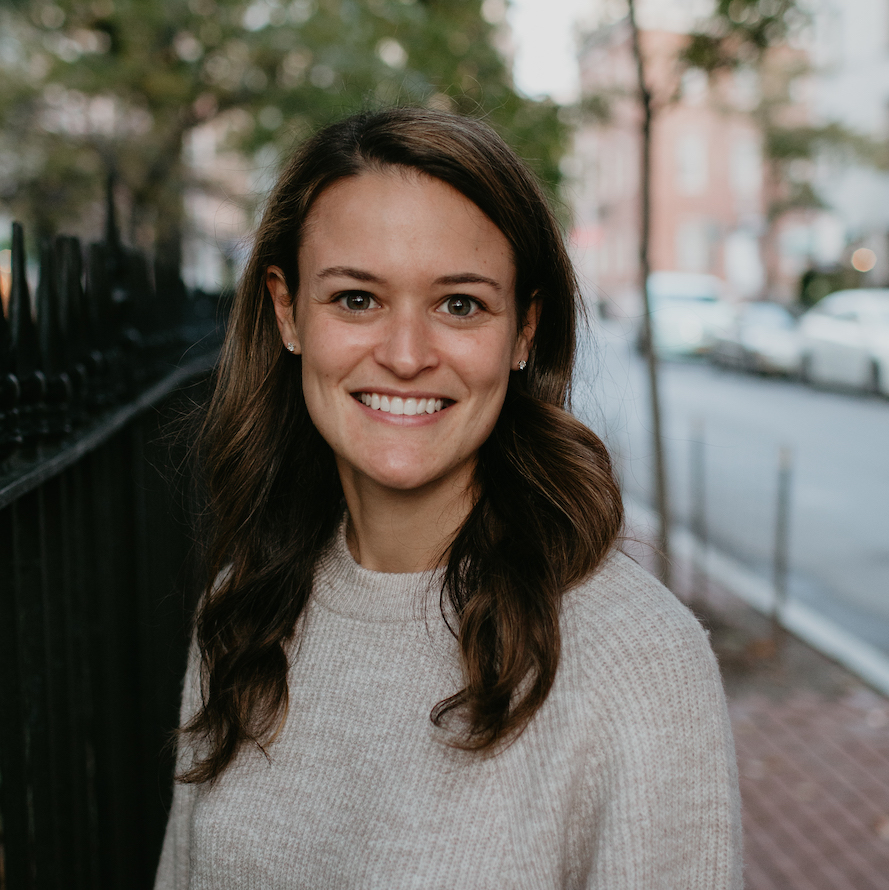Suicide and Self-Injury
Symposium 72 - Multimethod Approaches in the Science of Social Media and Suicide: Rethinking Risk, Protection, and Prevention
Level of Familiarity: All
Recommended Readings: Naslund, J. A., Bondre, A., Torous, J., & Aschbrenner, K. A. (2020). Social media and mental health: benefits, risks, and opportunities for research and practice. Journal of technology in behavioral science, 5, 245-257., Pew Research Center. (2024, January 31). Americans' social media use. Pew Research Center: Internet & Technology. https://www.pewresearch.org/internet/2024/01/31/americans-social-media-use/, Hamilton, J. L., Biernesser, C., Moreno, M. A., Porta, G., Hamilton, E., Johnson, K., ... & Goldstein, T. G. (2021). Social media use and prospective suicidal thoughts and behaviors among adolescents at high risk for suicide. Suicide and Life‐Threatening Behavior, 51(6), 1203-1212., ,
-
JH
Jessica Hamilton, Ph.D. (she/her/hers)
Assistant Professor
Rutgers University
New Brunswick, New Jersey, United States -
BA
Brooke Ammerman, Ph.D. (she/her/hers)
Assistant Professor
University of Notre Dame
Notre Dame, Indiana, United States -
JH
Jessica Hamilton, Ph.D. (she/her/hers)
Assistant Professor
Rutgers University
New Brunswick, New Jersey, United States -
JH
Jessica Hamilton, Ph.D. (she/her/hers)
Assistant Professor
Rutgers University
New Brunswick, New Jersey, United States -
AG
Anna Gilbert, M.S.
Doctoral Candidate
Seattle Pacific University
Seattle, Washington, United States -
BA
Brooke Ammerman, Ph.D. (she/her/hers)
Assistant Professor
University of Notre Dame
Notre Dame, Indiana, United States -

Melissa Dreier, M.S. (she/her/hers)
PhD Student
Rutgers University
Pisacataway, New Jersey, United States -

Jacqueline Nesi, Ph.D.
Assistant Professor
Alpert Medical School of Brown University
Providence, Rhode Island, United States
Chair(s)
Discussant(s)
Presenter(s)
As nearly all Americans now own a smartphone, access to social media platforms has become ubiquitous, with over 80% of Americans reporting using at least one type of social media. Social media use has garnered a lot of negative attention regarding the potentially detrimental effects on mental health outcomes, including suicidal thoughts and behaviors. Yet, most research has failed to consider the potential nuances of the risk relationship at an intensive timescale. Further, despite individuals reporting social media as a way to connect with others, few investigations have considered the positive effects on suicide risk. As the trends in suicide rates parallel the rise in social media use, there is a critical need to provide sophisticated examinations of the link between social media use and suicide risk.
This symposium will include five talks offering novel methodological approaches to investigating the link between social media and suicide risk, spanning repeated assessments via intensive monitoring, objective content analysis, objective screenshots, and qualitative methods. First, Dr. Hamilton leverages daily and weekly diary data to examine how specific aspects of social media use, including exposure to self-harm content, can increase the risk for nonsuicidal self-injury urges and behaviors, as well as suicidal ideation. Dr. Law will then present findings from one month of personal user data that aims to understand better the specific use patterns of use and content engagement on one of the most popular social media platforms, TikTok, among young adults with suicidal ideation. Extending these findings, Dr. Ammerman will provide a nuanced examination of the link between social media use and suicide risk more broadly. She will present data collected from smartphone screenshots every five seconds to identify how different use patterns related to self-reported suicidal ideation collected via ecological momentary assessment (EMA). The fourth talk in the symposium by Ms. Dreier will leverage EMA data to consider how social media may be used as a positive-mood-boosting activity and a potential protective factor for suicide risk. Finally, Dr. Nesi will conclude the symposium by discussing how we may promote more healthy social media use. Utilizing a multi-method approach, she will characterize how parents perceive and implement social media-specific parenting strategies with early adolescents, which will provide clinically relevant approaches to promote healthy social media use and prevent youth suicide risk.
Learning Objectives:
- Identify social media use behaviors that confer suicide risk.
- Identify social media use behaviors that may protect against suicide risk.
- Gained insights into approaches that enhance the science of social media use and suicide risk.
- A greater understanding of how parents / caregivers can impact social media use.
- Discuss potential avenues for interventions to promote healthy social media use.
Presentations:
-
10:30 AM - 11:30 AM EST(SYM 72) Self-harm Content on Social Media and Proximal Risk for Self-injurious Thoughts and Behaviors Among Adolescents
Speaker: Jessica L. Hamilton, Ph.D. (she/her/hers) – Rutgers University
Co-author: Srushti Untawale, B.S. – Rutgers University
Co-author: Maya Dalack, B.S. – Rutgers University
Co-author: Evan M. Kleiman, Ph.D. (he/him/his) – Rutgers University
Co-author: Aijia Yao, M.A. – Rutgers University
Co-author: Athena Thai, None – Rutgers University
Co-author: Isha Bhatia, None – Morris Hills High School
-
10:30 AM - 11:30 AM EST(SYM 72) From Views to Vulnerability: Examining the Relationship Between Tiktok Use and Suicidal Ideation and Behaviors in Adolescents and Young Adults
Speaker: Keyne C. Law, Ph.D. (she/her/hers) – Seattle Pacific University
Co-Author: Anna C. Gilbert, M.S. – Seattle Pacific University
Co-author: Katherine Anne Comtois, M.P.H., Ph.D. – University of Washington School of Medicine
Co-author: Molly C. Adrian, Ph.D. (she/her/hers) – University of Washington
-
10:30 AM - 11:30 AM EST(SYM 72) Integrating Active and Passive Approaches: Intensive Time Sampling in Investigating Social Media's Impact on Suicide Risk
Speaker: Brooke A. Ammerman, Ph.D. (she/her/hers) – University of Notre Dame
Co-author: Miguel Blacutt, Other – University of Notre Dame
Co-author: Ross Jacobucci, Ph.D. – University of Wisconsin-Madison
Co-author: Nilam Ram, Ph.D. – Stanford University
-
10:30 AM - 11:30 AM EST(SYM 72) Social Media Use as a Behavioral Activation Tool and Protective Factor Against Suicidal Thoughts in Adolescents with Anhedonia
Speaker: Melissa J. Dreier, M.S. (she/her/hers) – Rutgers University
Co-author: Sarah Horne, MA (she/her/hers) – Yeshiva University
Co-author: Anya Konduru, High School Student (she/her/hers) – Somerset County Vocational Technical High School
Co-author: Evan M. Kleiman, Ph.D. (he/him/his) – Rutgers University
Co-author: Bianca Caproni, BA (she/her/hers) – Rutgers University
Co-author: Lauren E. Harnedy, M.S. – Rutgers University
Co-author: Jessica L. Hamilton, Ph.D. (she/her/hers) – Rutgers University
-
10:30 AM - 11:30 AM EST(SYM 72) Multimethod Assessment of Parenting Strategies for Managing Early Adolescents' Social Media Use
Speaker: Jacqueline Nesi, Ph.D. – Alpert Medical School of Brown University
Co-author: Jennifer C Wolff, PhD – Alpert Medical School of Brown University
Co-author: Ella Diab, B.S. (she/her/hers) – The Warren Alpert Medical School of Brown University
Co-author: Sydney K Velotta, B.S. – Alpert Medical School of Brown University
Co-author: Stefanie L. Sequeira, Ph.D. (she/her/hers) – University of Virginia
Co-author: Emma DeMartino, BS – University of North Carolina School of Social Work
Co-author: Deborah J Jones, PhD – University of North Carolina at Chapel Hill
Co-author: J Graham Thomas, PhD – Alpert Medical School of Brown University

.png)
